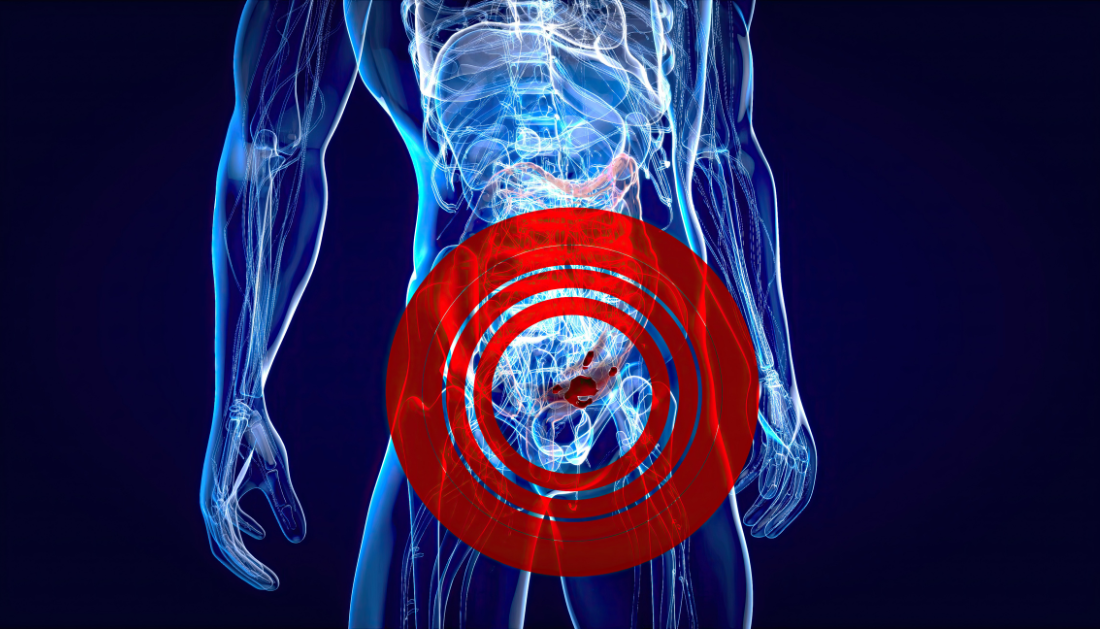

Researchers examined a modified regimen of total neoadjuvant therapy (TNT) in high-risk locally advanced rectal cancer (LARC) patients in Sweden in a recent prospective observational cohort study that was published in eClinicalMedicine.
Despite treating older patients with more advanced malignancies, they discovered that the modified TNT regime produced decreased neurotoxicity and equivalent complete response (CR) rates to the RAPIDO study.
Context
Treatment for lung and blood cancer (LARC) usually consists of preoperative chemoradiotherapy (CRT) and adjuvant chemotherapy. Though CRT is successful in reducing locoregional recurrences, its effects on distant metastases and overall survival are not as great.
This sparked interest in TNT, a preoperative systemic therapy regimen. The results of the RAPIDO trial, which stands for Rectal Cancer and Preoperative Induction Therapy Followed by Dedicated Operation, were better when CRT was used in place of a TNT regimen consisting of preoperative chemotherapy (FOLFOX or CAPOX) and short-course radiation therapy (scRT).
A major player in RAPIDO, the Uppsala recruitment center, had encouraging outcomes with TNT, especially because of the lower radiation load and higher response rates. In anticipation of non-inferior results, they consequently proposed a modified TNT regimen (LARC treatment–Uppsala style, LARCT-US) with fewer chemotherapy cycles.
Numerous Swedish facilities implemented this regimen, and the Swedish Colorectal Cancer Registry (SCRCR) was used to track the results, including those of patients who followed the protocol but were not formally involved in the research.
Researchers compared the outcomes of Swedish LARC patients treated with a shortened RAPIDO TNT regimen to those in the trial’s experimental arm in the current investigation.
About the Study
16 hospitals and 273 patients participated in the current trial; however, some patients at two hospitals received off-study ad modum (AdmL, n=189) treatment because of logistical difficulties or during the coronavirus disease 2019 (COVID-19) pandemic.
When combined, these 18 hospitals made up almost all of Sweden’s LARC treatment facilities. Computed tomography (CT) and magnetic resonance imaging (MRI) were used to stage the patients. Rectal adenocarcinoma less than 16 cm from the anal verge, high-risk MRI characteristics, age 18 years or older, Eastern Cooperative Oncology Group (ECOG) performance level ≤1, and appropriate follow-up capability were the same inclusion criteria as those used in the RAPIDO trial.
MRI contraindications, recurrent rectal cancer, nonresectable tumor growth, distant metastases, genetic conditions, pregnancy, breastfeeding, significant cardiac or neurological conditions, and specific genetic conditions were all excluded from the study.
Treatment for the patients enrolled in the study consisted of short-course radiation (5×5 Gy) and CAPOX or FOLFOX-6 chemotherapy for 12 weeks. Unless a clinical CR (cCR) permitted a watch-and-wait (W&W) strategy, surgery was performed.
The combined pathologic complete response (pCR) and sustained cCR was the primary endpoint, or CR rate. Toxicology, disease-free survival (DFS), overall survival (OS), locoregional recurrence (LRR), distant metastases (DM), and quality of life (QoL) were among the secondary objectives.
The common terminology criteria for adverse events (CTCAE) criteria were used to evaluate toxicity, and three years after therapy, QoL was examined. However, because of the pandemic, assessments were postponed.
Kaplan-Meier analysis, Clopper-Pearson confidence intervals, odds ratios, and cumulative incidence with competing risks were among the statistical techniques applied.
In summary
In summary, a shortened TNT regimen that consists of four chemotherapy cycles (instead of six) after scRT appears to be equally effective in treating LARC in real-life scenarios, which frequently involve more advanced tumors than those studied in clinical trials, for patients with LARC who have a high risk of recurrence.
This regimen’s encouraging low risk of locoregional failure or locoregional recurrence (LRR) raises the possibility that this resource-saving strategy can be successfully applied to normal care.
While a shorter regimen would not be as effective in preventing systemic recurrences as six cycles, it might be able to lessen long-term side effects in people who don’t respond well to treatment.
For more information: Total neoadjuvant treatment using short-course radiotherapy and four CAPOX cycles in locally advanced rectal cancer with high-risk criteria for recurrence: a Swedish nationwide cohort study (LARCT-US), eClinicalMedicine, DOI:https://doi.org/10.1016/j.eclinm.2024.102771
more recommended stories
 Red Meat Consumption Linked to Higher Diabetes Odds
Red Meat Consumption Linked to Higher Diabetes OddsKey Takeaways Higher intake of total,.
 Pediatric Crohn’s Disease Microbial Signature Identified
Pediatric Crohn’s Disease Microbial Signature IdentifiedKey Points at a Glance NYU.
 Nanovaccine Design Boosts Immune Attack on HPV Tumors
Nanovaccine Design Boosts Immune Attack on HPV TumorsKey Highlights Reconfiguring peptide orientation significantly.
 High-Fat Diets Cause Damage to Metabolic Health
High-Fat Diets Cause Damage to Metabolic HealthKey Points Takeaways High-fat and ketogenic.
 Acute Ischemic Stroke: New Evidence for Neuroprotection
Acute Ischemic Stroke: New Evidence for NeuroprotectionKey Highlights A Phase III clinical.
 Statins Rarely Cause Side Effects, Large Trials Show
Statins Rarely Cause Side Effects, Large Trials ShowKey Points at a Glance Large.
 Anxiety Reduction and Emotional Support on Social Media
Anxiety Reduction and Emotional Support on Social MediaKey Summary Anxiety commonly begins in.
 Liquid Biopsy Measures Epigenetic Instability in Cancer
Liquid Biopsy Measures Epigenetic Instability in CancerKey Takeaways Johns Hopkins researchers developed.
 Human Antibody Drug Response Prediction Gets an Upgrade
Human Antibody Drug Response Prediction Gets an UpgradeKey Takeaways A new humanized antibody.
 Pancreatic Cancer Research: Triple-Drug Therapy Success
Pancreatic Cancer Research: Triple-Drug Therapy SuccessKey Summary Spanish researchers report complete.

Leave a Comment